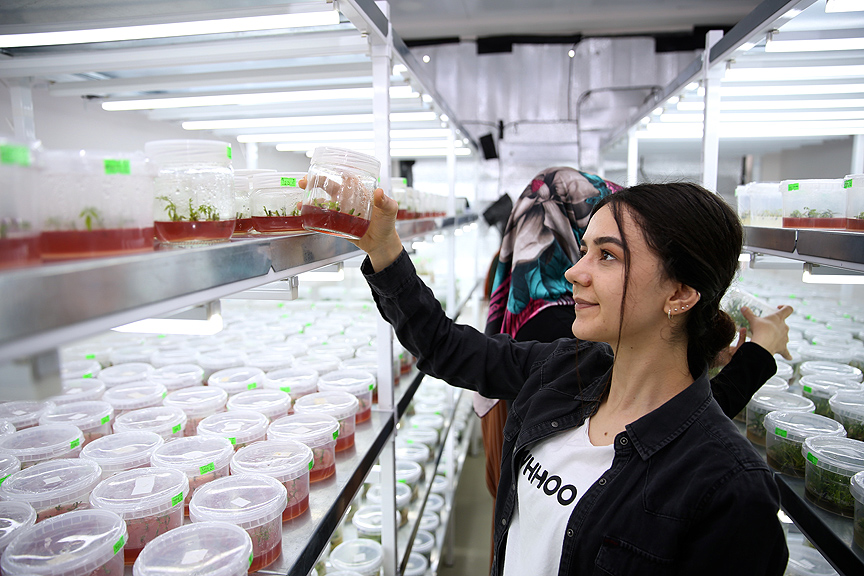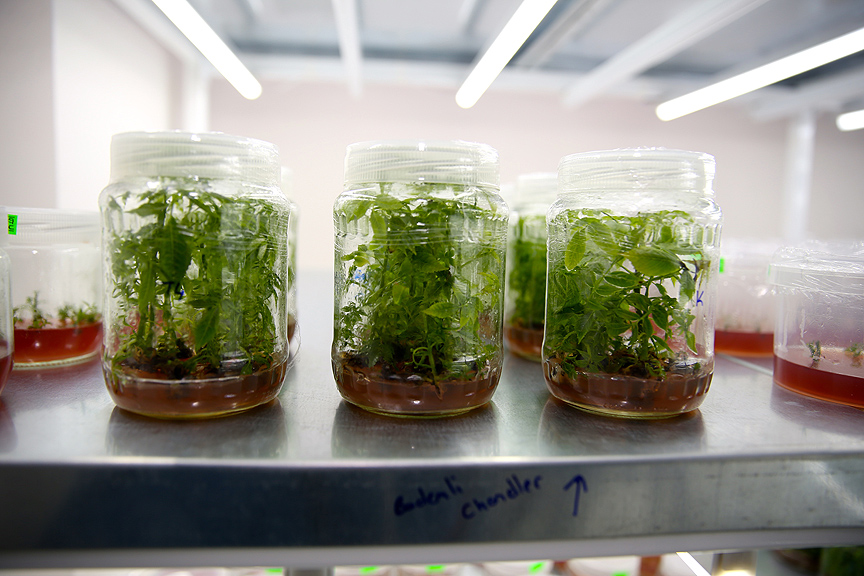In 2023, Sakarya University organized various events to raise awareness about the conservation of forests, natural areas, and sustainable land use. As part of these efforts, the university focused on enhancing biodiversity on campus by diversifying habitats and vegetation, including planting different plant species and fruit trees. These plantings contribute to supporting the local ecosystem and diversifying natural habitats. Additionally, Sakarya University actively participated in multiple projects with the Ministry of Agriculture and Forestry, taking a leading role in conservation efforts across Turkey.
The university also engaged in the TÜBİTAK 2209 student project, where campus wildlife was monitored using camera traps, generating extensive data on species presence and biodiversity levels. This project has significantly contributed to assessing the biodiversity of the campus ecosystem.
Notable research and projects supported by the university include:
These activities demonstrate Sakarya University’s commitment to environmental conservation and sustainability, while providing students and the broader community with a sustainable, nature-integrated campus experience.
 |  |
| Flora Catalogue of Sakarya University | Fauna Catalogue of Sakarya University |
Sakarya University actively works to maintain and extend existing ecosystems and their biodiversity, focusing on both plants and animals, especially in ecosystems that are under threat. Key efforts include:
The flora of the campus has been recorded and cataloged, documenting 115 plant species from 39 families, with a significant proportion being native to Turkey. Flora catalog
The fauna of the campus has also been recorded and cataloged, ensuring proper monitoring and protection of animal species. Fauna catalog
Special shelters have been built by the Department of Maintenance and Repair to protect campus animals, providing them with safe spaces.
Plant Tissue Research and Production Laboratory has been established to reproduce various plant species in controlled environments, enabling the university to send plants to areas where they are needed for ecological restoration [URL] [URL].
 |  |
| Plant Tissue Research and Production Laboratory | |
Additionally, Sakarya University contributes to national conservation and biodiversity projects:
Uzungöl Special Environmental Protection Area Management Plan Revision by the Ministry of Environment, Urbanization, and Climate Change, aimed at improving the management of this protected area.
Research on the Impacts of Climate Change on Marine and Terrestrial Ecosystems in the Gökova Special Environmental Protection Area by the Ministry of Environment, Urbanization, and Climate Change, focusing on climate change adaptation strategies for these ecosystems.
These initiatives and studies demonstrate Sakarya University's commitment to preserving and expanding natural ecosystems while promoting biodiversity conservation across both plant and animal species.
Sakarya University offers a variety of educational programs focused on ecosystems, including wild flora and fauna, aimed at local and national communities. These programs cover essential topics such as conservation, biodiversity, and ecosystem management. Key courses offered by the university include:
Tohumsuz Bitkiler Sistematiği (Systematics of Non-Flowering Plants): Focuses on the classification and characteristics of non-flowering plants. Course link
Tohumlu Bitkiler Sistematiği (Systematics of Flowering Plants): Covers the study of flowering plants, including their identification and taxonomy. Course link
Omurgasız Hayvanlar Sistematiği (Systematics of Invertebrate Animals): Provides a detailed study of invertebrate species, their classification, and ecological roles. Course link
Biyoçeşitlilik (Biodiversity): Explores the importance of biodiversity and its role in ecosystem stability and conservation. Course link
Türkiye Vejetasyonu (Vegetation of Turkey): Focuses on the plant life and ecosystems found in Turkey, including their classification and distribution. Course link
Türkiye Geofitleri (Geophytes of Turkey): Studies the geophytes (plants with underground storage organs) native to Turkey and their ecological significance. Course link
Biyocoğrafya (Biogeography): Investigates the geographic distribution of species and the factors influencing their spread across different regions. Course link
These courses, combined with public seminars and community engagement, support Sakarya University's commitment to environmental education and the protection of ecosystems. Students, staff, and local communities are encouraged to actively participate in preserving the natural environment through these educational opportunities.
Sakarya University offers a variety of educational programs focused on ecosystems, including wild flora and fauna, aimed at local and national communities. These programs cover essential topics such as conservation, biodiversity, and ecosystem management. Key courses offered by the university include:
Tohumsuz Bitkiler Sistematiği (Systematics of Non-Flowering Plants): Focuses on the classification and characteristics of non-flowering plants. Course link
Çevre Sorunları ve Çözümleri (Environmental Issues and Solutions): Discusses environmental challenges and solutions for their mitigation. Course link
Biyolojik Mücadele (Biological Control): Covers methods of controlling pests and diseases using natural predators or other biological agents. Course link
Ekoloji Uygulamaları (Ecology Applications): Focuses on practical applications of ecological principles in the real world. Course link
Bitki Fizyolojisi (Plant Physiology): Studies the functions and processes of plants, including growth, reproduction, and responses to environmental factors. Course link
Entegre Zararlı Yönetimi (Integrated Pest Management): Teaches strategies for managing pests in agricultural systems using a combination of techniques. Course link
Çevre Biyoteknolojisi (Environmental Biotechnology): Focuses on the use of biotechnology to address environmental issues such as pollution and waste management. Course link
Biyoteknoloji (Biotechnology): Covers the applications of biological science in industrial processes and environmental management. Course link
These courses, combined with public seminars and community engagement, support Sakarya University's commitment to environmental education and the protection of ecosystems. Students, staff, and local communities are encouraged to actively participate in preserving the natural environment through these educational opportunities.
Sakarya University offers educational programs and outreach initiatives focused on the sustainable management of land for tourism, targeting both local and national communities. These programs encompass compulsory and elective courses, public seminars, and panels aimed at reducing the risks and impacts of climate change. Additionally, the university organizes events and seminars emphasizing the importance of green spaces for nature conservation. Student communities actively participate in these initiatives, promoting the protection and sustainable use of natural areas. The university also collaborates with local communities to maintain shared land ecosystems, working with recycling enterprises, waste disposal services, and water and sewerage administrations.